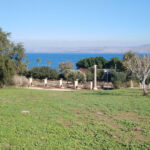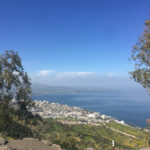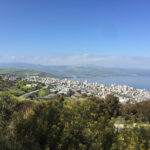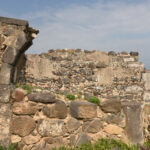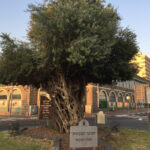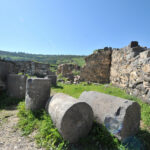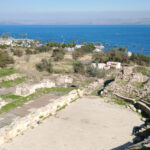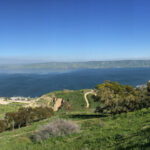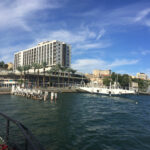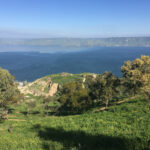Tiberias
tiberias
We find the city of Tiberias mentioned in the Gospel of John: "After this, Jesus went across the Sea of Galilee (of Tiberias). A large crowd followed him, because they saw the signs he was performing on the sick." (Jn 6,1-2). In another passage we read: "Other boats came from Tiberias near the place where they had eaten the bread when the Lord gave thanks." (Jn 6:23).
The city takes its name from the emperor Tiberius, when around the year 20 AD., Herod Antipas, decided to build it in honor of him. In the early years the Jews were not willing to live in the city, which was considered impure because there was a cemetery. Herod thus forced the rural populations of Galilee to move there.
The great immigration of Jews to this city occurred with their expulsion from Jerusalem in 135: together with Sefforis, Tiberias became one of the major centers of Jewish culture.
From the 8th to the 10th century a Masoretic community flourished in Tiberias: it is in this city that the Hebrew text of the Bible was vocalized. In the 12th century the Crusaders made Tiberias the main city of the Principality of Galilee, included in the Kingdom of Jerusalem. The city was besieged by Saladin in 1187 who defeated the Crusader army in the same year in the famous Battle of Hattin, just outside the city.
In the 16th century, a Jewish noblewoman from Spain, Donna Grazia, had the city walls restored, built a yeshiva, and encouraged European Jews fleeing persecution to inhabit the city. For a hundred years Tiberias flourished and was subsequently repopulated by Hasidim Jews.
In the last two centuries Tiberias saw a new immigration of rabbis, who made it a center of Jewish studies and one of the four holy cities for Jews, along with Jerusalem, Hebron and Safed.
Today Tiberias has about 40,000 inhabitants. Located on the west side of the lake makes it a favorite holiday destination for Israelis. Tiberias is one of the lowest cities on earth: it is located 200 meters below the sea level. This position makes winters mild but summers often hot.
